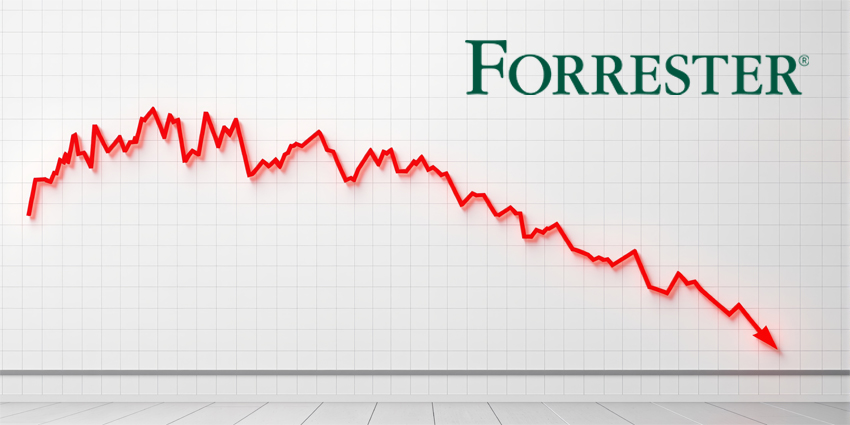The biannual UK Customer Satisfaction Index (UKCSI) report has revealed the companies with the best customer service in 2024.
Topping the list is key-cutting British stalwart Timpson, with Nationwide and John Lewis & Partners rounding out the top three.
The Institute of Customer Service surveyed 15,000 customers about their most recent customer service experiences with 266 major UK brands and 16 generic companies, such as “your local restaurant.”
The organization uses the survey data to provide companies with a UKCSI score based on how customers rate businesses across 26 areas within the following five dimensions:

Timpson topped the list with a score of 86, a 2.4 increase that saw the company move up 12 places since the July 2023 report. Other notable performances include Nationwide’s jump from 12th to second and M&S’s improvement by 20 places to make it into the top ten.
Despite several brands making significant improvements, the most impressive display was undoubtedly from Waitrose. The supermarket’s 4.4-point increase saw it skyrocket from 71st place in 2023 to fourth place in the most recent report.
However, while there was cause for celebration for some individual businesses, the overall level of customer satisfaction has dropped by 0.8 in the past 12 months, and by 2.6 since 2022.
In the foreword to the report, Joanna Causon – Chief Executive of The Institute of Customer Service – discussed some of the reasons that the UK continues to struggle with customer satisfaction:
Satisfaction has fallen, or is stagnant, not just for transactional experiences and complaint handling but also for measures of emotional connection, ethics and the sense that organizations demonstrate a customer ethos.
“As financial pressures have intensified, I’ve noticed that some organizations are increasingly taking a narrow, transactional approach to measuring customer satisfaction. But there is a risk that this gives insufficient focus to deeper factors that shape customer satisfaction, reputation, long-term performance and value.”
Customer Satisfaction Insights
By comparing the similarities and differences between high and low performing brands, it is possible to discern trends and lessons for enhancing an organization’s customer satisfaction.
Indeed, the report outlined some of the key differences between the top 50 ranked companies and the other brands, as seen in the below graphic:

As expected, the top 50 outperform the other brands across each of the metrics. But it is interesting to note the areas in which there are significant differences, such as the handling and speed of resolving complaints.
The survey also asked customers what actions companies should take to improve their customer service offerings, with making it easier to contact the right person to help, more friendly/helpful staff, and better website navigation receiving the most mentions.
Another area discussed within the report is the correlation between a company’s business record/reputation on business practices and societal impact, and its UKCSI ranking.
The study highlights the growing importance of companies to do the ‘right thing’, with 62 percent of customers believing that poor practices or behavior by a company can harm its long-term reputation and that the actions of one or a few companies can negatively impact the entire sector.
In addition, more than 40 percent of respondents admitted that they had chosen not to do business with an organization due to a record/perception of bad company behaviors – highlighting the impact that a damaged reputation can have on a company’s bottom line.
This data is particularly interesting, given Timpson’s position as the top-ranked company.
The retail service provider is renowned for its high standards of employee experience, and its recruitment policy of employing from prisons – a point outlined by the company itself, which confirmed that 12 percent of its current workforce joined from prison, with many having gone on to work in senior positions.
The relationship between companies’ reputations and their customer satisfaction levels was discussed by Joanna Causon:
“Customer service is closely linked to reputation and governance. This UKCSI shows that many customers are influenced by perceptions of an organisation’s business practices, ethical conduct and behavior, especially the way organisations treat customers and employees.
I found it interesting that over 30% of customers feel that in the last 5 years more companies are doing the right thing in their business practices. But this growing awareness brings a heightened risk to reputation.
Customer Satisfaction Recommendations
As well as including analysis and comparisons of the survey data, the report also listed nine key areas that it believes businesses should focus on in order to enhance their customer satisfaction offerings:
- Strategy and long-term focus
- A focus on organizational culture
- Demonstrating that customer service is a business asset
- Making it easy to access help and advice
- Demonstrating care for a customer’s personal needs and situation
- Doing the right thing in business practices
- Balancing the needs of stakeholders
- Achieving the right blend of technology and people in customer service
- Building the capacity for agility
You can find out more about the UKCSI’s recommendations and how the top brands performed by downloading the research.
More Customer Satisfaction Statistics
Interestingly, this week has also seen customer satisfaction news from the US.
A report conducted by the American Customer Satisfaction Index (ACSI) revealed that McDonald’s is the lowest-rated major restaurant in the US.
In contrast, Chick-fil-A ranked highest for the 10th year in a row, while steak houses Longhorn and Texas Roadhouse saw a 4% increase in their ratings, sharing the top spot for full-service restaurants.
While customer satisfaction may be dwindling in the UK, the US is experiencing steady growth.
The report revealed that customer satisfaction in the full-service restaurant sector has improved overall since last year, with all benchmarks rising except for those related to mobile apps.
There were similar results in the fast-food sector, with all benchmarks having increased or stayed the same.
The overall ACSI score for fast-food rose by one percent, while full-service saw a four percent increase, making it the highest-performing sector, surpassing areas such as breweries, soft drink companies, and cell phone providers.







